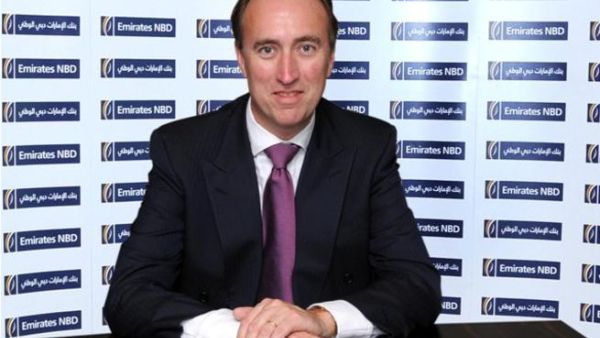Emirates NBD Chief Investement Officer: Investors have to be careful

Investors are finally seeing the global recovery for what it is - like walking through mud. There is no easy way out of the problems of the world. The big old economies have issues that will continue to weigh on sentiment for some years to come. Investors have to be careful not to overpay for assets. I hear too often that some markets - particularly US equities look cheap relative to history- but never in history has the western world faced such a burden of debt problems with populations in decline. If investors value assets properly they will not overpay and can still make good long-term gains. In the very near term the risk markets such as equities may be due a rebound. Inflation may have peaked and emerging market central banks can probably go slower on raising interest rates.
The US economy will go nowhere without jobs growth. US employment data came back to haunt the market in the past week. Back in March It was the improved labour market data that had lifted the equity markets to their highs for the year. However jobs growth is slowing again. The US added just 54,000 new jobs in May versus market expectations of 165,000. The rate of unemployment rose to 9.1% (although we have heard that the US government believes the real number to be closer to 16%). US companies remain fearful of expanding too quickly. The level of jobs growth is poor compared to similar stages of the economic cycle in previous decades. That is why we say this time is different. Companies fear that underlying demand is weak. Individuals still have a lot of debt and will be very reluctant to borrow money to expand their spending. In the absence of acceleration in retail sales and global growth companies won’t hire. In the absence of new jobs creation individuals will be reluctant to spend money.
The Eurozone is trying to be something it really isn’t- a single economic zone. Greece continues to hit the headlines with a lack of meaningful long term solutions to their problems. In truth the Greek situation is just a reflection of the structural problems of the Eurozone, a group of many countries trying to look like one country. If the Eurozone was really one economic zone, when one part of the region gets into trouble there would be a flow of money to that country to help it out. Instead tax payers in France and Germany are basically threatening to veto any movement of money from their pockets to the pockets of the Greek nation. Claude Trichet the European Central Bank President was correct last week in suggesting that the Euro zone needs a Finance Ministry, but of course it will never happen. Only if you had a single Finance Ministry for the Euro zone could you have the easy move of money across countries to provide the much needed assistance that Greece, Portugal and Ireland need. The lack of movement of people is a further rigidity that exists in the Eurozone is.
In the United States when workers lose their jobs in Chicago they can easily move and take up work in say Philadelphia. Such an easy movement of people does not exist in the Eurozone. The language barrier is one of a number of impediments to the free movement of people. Hence whilst southern Europe has high unemployment northern Europe has near full employment. Interestingly Germany and Spain a few months ago have initiated a scheme for Spaniards to learn German so that they could provide workers for the factories in Germany that are running short of staff. The number of people learning German in Barcelona has increased 20% over the past year!
The lack of performance from the global banks sector provides a clear drag on markets. In the 2011 the global banks sector price index is down just over one percent. The US financials are at barely 50% of the value they were at in 2006. Many of the Banks in the largest economies of the world are struggling to identify a strategy for the future. Capital requirements are unclear, the potential for write-downs on losses on lending to Euro zone governments such as Greece are unclear, and their access to the growth markets in emerging markets is unclear. We believe that positive performance can only come from a wave of mergers and acquisitions in order for banks to take costs out and improve profitability.
China has a water crisis. With respect to China whilst most of the economists focus has been on how the authorities were going to slow the pace of inflation there has been less focus on the greater problem of a lack of water. China is facing the worst drought conditions for fifty years. Over 1,333 hectares of wetlands located east of Dongting Lake have dried up. The drought has left the Yangtze River, China's longest river, with its lowest levels of rainfall since 1961. The drought has affected parts of Hubei, Hunan, Jiangxi, Anhui, Jiangsu and Zhejiang provinces, which are located near the middle and lower reaches of the Yangtze River. These areas have seen 40% to 60% less rainfall than usual. The Yangtze is an important lifeline of China. The Yangtze lies in a rice belt, providing about a fifth of China's economic activity and two-thirds of its inland shipping. The Yangtze dam when built was expected to provide 10-15% of the electricity needs of China- the very low levels of water in the reservoir have diminished the ability of the dam to deliver the power needed by place such as Beijing. This summer the country is expected to suffer power cuts. The South of China has historically had plentiful water. Ironically the $62 billion South-North Water Diversion Project aims to transfer nearly 36 billion cubic meters of water every year from China’s Yangtze River Basin and ship it to the arid north. China faces the prospect of fundamental shortage of the most basic human need- water.
Just a quick return to our Mongolia theme; Rio Tinto one of the largest mining companies reportedly commented in Beijing last week that copper would remain in short supply for the next 10 years. The copper price like many commodities has traded side-wards since the start of the year and is about 10% off its peak price of $10160 per tonne established in February. In the next year, Mongolia will open the world’s largest copper mine, Oyu Tolgoi (OT). Ivanhoe Mining, quoted on New York and Toronto exchanges, owns a 67% interest in the mine.
The gold price remains strong increasing a further five dollars in the past week to $1541. With a backdrop of a weaker dollar reflecting problems in the US economy and the ongoing problems in Greece we expect the gold price to maintain its upward trend line.
Background Information
Emirates NBD
Emirates NBD, the leading banking group in the region, was formed on 19 June 1963, when H.H. Late Sheikh Rashid bin Saeed Al Maktoum signed the Charter of Incorporation of the National Bank of Dubai (NBD) which became the first National Bank established in Dubai and the United Arab Emirates (UAE). With the blessings of H.H. Sheikh Mohammed bin Rashid Al Maktoum, Vice President and Prime Minister of the UAE and Ruler of Dubai, NBD merged with Emirates Bank International (EBI) on 06 March 2007, to form Emirates NBD, the largest banking group in the region by assets. On 16 October 2007, the shares of Emirates NBD were officially listed on the Dubai Financial Market (DFM). The merger between EBI and NBD to create Emirates NBD, became a regional consolidation blueprint for the banking and finance sector as it combined the second and fourth largest banks in the UAE to form a banking champion capable of delivering enhanced value across corporate, retail, private, Islamic and investment banking throughout the region.






